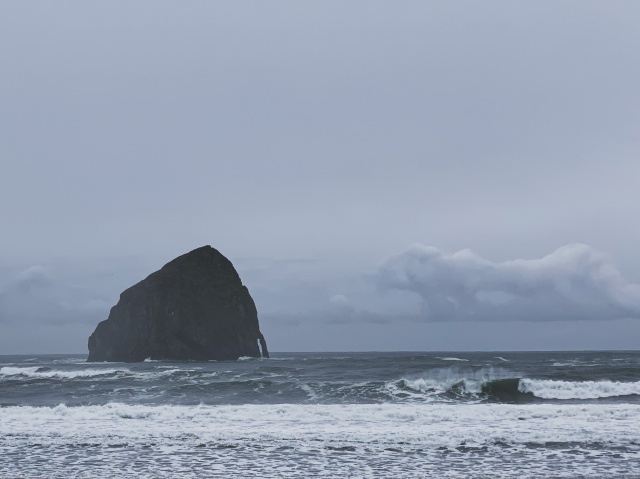guitars
Haystack Rock

I’m impressed with these campaign brand guidelines which are fairly complex but conveyed clearly. The font is strong—I’m happy dems have moved away from serif fonts. Don’t miss the hand lettered state names.
I also enjoyed this review of the brand at Brand New: Water Under the Bridge.
I also enjoyed this review of the brand at Brand New: Water Under the Bridge.

Thanks a lot gray lady, you calling D&D cool officially makes it uncool! aw, who am I kidding—it was never cool and I wouldn’t have it any other way. *ruffles D&D’s hair*

Short answer: yes, some clever public awareness campaigns around responsible tagging help. Sometimes not sharing a thing we love is the best way to love it. See also the cautionary tale of The Broccoli Tree.
Wet Chicken

Living the dream? On one hand this is a clever way to game Instagram. On the other hand, social networks are supposed to be about being social with other people so bots like this make it a less social environment. (I've also thought that hashtags in text are machine garbage that make things less human so I'm an outlier.) And businesses just blindly handing out gifts to antisocial media accounts? What? This whole article is an exquisite mess.

"Remember ‘We’re the free speech wing of the free speech party’? How vain and oblivious does that sound now? Well, it’s the morning after the free speech party, and the place is trashed."Fascinating interview with fourteen content moderators who have worked at various services like Google, Twitter, Reddit, and Facebook.

Webster’s Dictionary defines serverless as—well, it doesn’t define it yet. But I like Postlight’s take on it here. I’m also a fan of Airtable which does structured data and media entry well. With some light glue in Node.js form, you can present that data and media with HTML & CSS. I could see using this when you don’t need the overhead of running WordPress but you want some structure around how you enter content. Neat idea! In conclusion, serverless structure still requires servers.

This is so good! This album let me hear these worn-in 70s soft rock favorites with new ears and you can feel JoCo’s joy emanating from every layer. It’s too late to back the Kickstarter, but I think you can still get some groovy swag. It’s also on Spotify and the like. RIYL: feelings.
County Courthouse




